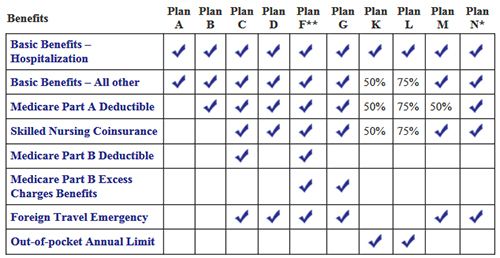Medicare Advantage Plans
Medicare Advantage plans are private health plans that generally provide all the coverage of Original Medicare and more. Many Medicare Advantage plans offer lower copayments and cover benefits and services such as vision and dental not covered by Original Medicare.
Some plans may also include Part D, or prescription drug coverage. These plans are referred to as Medicare Advantage with Prescription Drug coverage (MAPD).
How do they work?
Coverage under a Medicare Advantage plan replaces your Original Medicare coverage. Some members pay $0 monthly plan premium for a Medicare Advantage plan. With low to no premiums, your out-of-pocket costs (like those paid to see a doctor or to be admitted to the hospital) under Medicare Advantage plans may be lower than your expenses would be with traditional Medicare programs.
Medicare Advantage Plan Types
Medicare HMO plans
A Medicare Health Maintenance Organization (HMO) plan covers care you receive through a network of local doctors and hospitals that coordinate your care. In most cases, if you obtain routine care from out-of-network providers, neither Medicare nor the Medicare Advantage HMO plan will pay for the costs. Your doctor may already participate in this type of plan.
Medicare POS Plans
Point-of-Service (POS) plans are HMO plans that allow the use of non-plan or non-preferred providers, but their services may cost you more.
Medicare PPO plans
Medicare Preferred Provider Organization, or PPO, plans allow you to choose between in-network and out-of-network providers. These plans provide reimbursement for all covered benefits, whether they are received in-network or not, as long as they are medically necessary. For services received outside the network, you will generally have higher copayment and coinsurance costs.
Medicare Private Fee-For-Service (PFFS) plans
Offered by private insurance companies, Medicare PFFS plans give you the freedom to receive care from the doctors and hospitals of your choice, as long as they agree to accept the plan’s terms and conditions of payment. Keep in mind that your doctor or hospital is not required to agree to accept the plan’s terms and conditions, and thus may choose not to treat you, with the exception of emergencies.
Some plans may also include Part D, or prescription drug coverage. These plans are referred to as Medicare Advantage with Prescription Drug coverage (MAPD).
How do they work?
Coverage under a Medicare Advantage plan replaces your Original Medicare coverage. Some members pay $0 monthly plan premium for a Medicare Advantage plan. With low to no premiums, your out-of-pocket costs (like those paid to see a doctor or to be admitted to the hospital) under Medicare Advantage plans may be lower than your expenses would be with traditional Medicare programs.
Medicare Advantage Plan Types
Medicare HMO plans
A Medicare Health Maintenance Organization (HMO) plan covers care you receive through a network of local doctors and hospitals that coordinate your care. In most cases, if you obtain routine care from out-of-network providers, neither Medicare nor the Medicare Advantage HMO plan will pay for the costs. Your doctor may already participate in this type of plan.
Medicare POS Plans
Point-of-Service (POS) plans are HMO plans that allow the use of non-plan or non-preferred providers, but their services may cost you more.
Medicare PPO plans
Medicare Preferred Provider Organization, or PPO, plans allow you to choose between in-network and out-of-network providers. These plans provide reimbursement for all covered benefits, whether they are received in-network or not, as long as they are medically necessary. For services received outside the network, you will generally have higher copayment and coinsurance costs.
Medicare Private Fee-For-Service (PFFS) plans
Offered by private insurance companies, Medicare PFFS plans give you the freedom to receive care from the doctors and hospitals of your choice, as long as they agree to accept the plan’s terms and conditions of payment. Keep in mind that your doctor or hospital is not required to agree to accept the plan’s terms and conditions, and thus may choose not to treat you, with the exception of emergencies.

